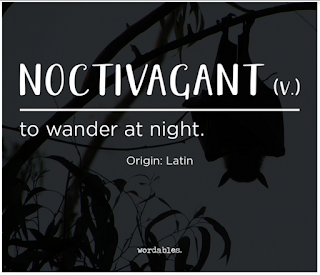Words
There are 21 posts filed in Words (this is page 2 of 3).
There is no I in Hello
Lexophile is a Good Word
My Mother forwarded this in email today:
“Lexophile” is a word used to describe those who love using words in rather unique ways, such as “you can tune a piano, but you can’t tuna fish”, or “to write with a broken pencil is pointless.” A competition to see who can come up with the best one is held every year. This year’s winning submission is posted at the very end.
When fish are in schools, they sometimes take debate.
A thief who stole a calendar got twelve months.
When the smog lifts in Los Angeles U.C..L.A.
The batteries were given out free of charge.
A dentist and a manicurist married. They fought tooth and nail.
A will is a dead giveaway.
With her marriage, she got a new name and a dress.
A boiled egg is hard to beat.
When you’ve seen one shopping Center you’ve seen a mall.
Police were called to a day care Center where a three-year-old was resisting a rest.
Did you hear about the fellow whose whole left side was cut off? He’s all right now.
A bicycle can’t stand alone; it is two tired.
When a clock is hungry it goes back four seconds.
The guy who fell onto an upholstery machine is now fully recovered.
He had a photographic memory which was never developed.
When she saw her first strands of gray hair she thought she’d dye.
Acupuncture is a jab well done. That’s the point of it.And the cream of the wretched crop:
Those who get too big for their pants will be exposed in the end.
Dimastalgia
Dimastalgia is the recognition that skills that sustained us for milennia are disappearing, and that loss is one of the vacuities of the present age, and a possible threat, as we shall see.
via After the Jug Was Broken: Dimastalgia: On The Loss of Traditional Skills.
I can’t find this word used that way (in English) anywhere else. It needs a word though.
What Would Godzilla Say?
I’m watching a Godzilla movie, made in Japan, originally spoken in Japanese. I especially like watching the Japanese Godzilla movies because I get snapshots of their culture, their humour and their lifestyle. Also, the language and how huge the translation really is.
When you hear the line "What the hell are you doing here?" Do you really think that was exactly what was said in the original Japanese? I doubt many people in Japan have grown up with the Christian religion. If there is a version of hell it would have it’s own word.
So, this got me thinking… What would Godzilla say? What are the real words used in the original Japanese version of the movie? How much of their own unique culture is lost in the translation?
I Would Kill Someone
 Isn’t it weird how lightly some words are taken in our culture? I posted about ‘hate‘ earlier. Today I was cruising Twitter and this post caught my attention. I’m fairly sure they are talking about killing someone playing poker at a casino… but isn’t death just a bit too extreme for making a poker bid/ bet on your hand of cards?
Isn’t it weird how lightly some words are taken in our culture? I posted about ‘hate‘ earlier. Today I was cruising Twitter and this post caught my attention. I’m fairly sure they are talking about killing someone playing poker at a casino… but isn’t death just a bit too extreme for making a poker bid/ bet on your hand of cards?
Can you Master the Art of the Humblebrag?
I know humble bragging isn’t a new concept. I’m sure there have been other words to describe it, like false modesty. But, I found humblebrag used as a word in a post on CNN Money. If a word can make it there, seems it’s working it’s way into the language and worth knowing.
So I found out more… there is an upcoming book about the humblebrag. Need a guide or tips: The Art and Science of the Humblebrag. Almost all examples of humblebragging are from celebrities (movie and TV stars in the US). Which really just shows how much power the media gives them. I’m sure there are people who could come up with humblebrags of real cleverness but they are seldom heard.
Of course, spellcheck isn’t accepting humblebrag as a word (two words would be fine, but as a compound word…). Will humblebrag make it as a lasting word or just be another fad word?
I think bragging sucks, don’t get me wrong, but I get it. What I hate about a humble brag is that people try to come off like they aren’t bragging. It’s people not being honest about their intention. Just tell us you are at an exclusive party. Don’t hide it behind a complaint about your dress not fitting.
Why do you think so many people humbly brag?
That is a question I constantly ask myself after reading a really good humble brag. It’s people wanting other people to envy them. I have realized that people do most things so they can tell other people about it. It’s all validation.
via The 50 Funniest ‘Humble Brags’ on Twitter «TwistedSifter.
Hate is a Word that Racists Use a Lot
What is a Vagabond?
 Historically, vagabonds were pretty tough, anti-establishment characters who lived as homeless drifters by choice. Modern vagabonds tend to be people who live off the grid or those who travel the world from out of a backpack.
Historically, vagabonds were pretty tough, anti-establishment characters who lived as homeless drifters by choice. Modern vagabonds tend to be people who live off the grid or those who travel the world from out of a backpack.
Traditionally a vagabond is a person who wanders from one place to another, with no real home of their own. In modern culture this could be a homeless person or a street person. However, vagabonds aren’t the same as people who stay in a city (or any one place) and live there without having a typical home. Vagabonds are a subculture of their own making.
Some offbeat world travellers call themselves vagabonds. They travel the world, they travel as cheaply as they can (in order to keep travelling , they work here and there… but they do have a home to plan to return to once they finish travelling. The vagabond tourist is about seeing the world and stretching their resources for as long and as well as they can along the journey. Historically, vagabonds were more rebellious and travel was their way of avoiding putting down roots or really belonging or being found anywhere.
Vagabonds (tramps, hobos, or drifters) during the Great Depression lived a homeless lifestyle by choice. Often they were fugitives from the law or just avoided the law after having a few run ins with the police and/ or jail. My Grandfather was a drifter for awhile. He told me about some of his adventures. He said the tramps were dangerous and he learned to avoid them. Those men could be brutal and were living by taking what they could get.
After living that way awhile some of them adapted the lifestyle as their own subculture. They created rules and guidelines for who they were and created a culture out of their vagabond lifestyle.
There’s a romantic ideal of the vagabond (the little hobo with patches on their clothes and a pack slung on the end of a stick), but that’s not based on the facts so much as the idea of travelling and seeing the world, meeting new people and enjoying different cultures. The modern is about adventure.
Could You be a Vagabond?
- You really need a change, like a jump start for your life or your spirits.
- You haven’t figured out your career path or all your jobs seem to be dead ends.
- You don’t have a lot of obligations, personal (family and kids) or financial (mortgage on a house).
- You feel burnt out or you’ve lost (or never really had) your sense of who you are.
- You’ve never really travelled, never left your own country, or even your own home town.
Other Words for Vagabond
- vagrant
- tramp
- drifter
- hobo
- wanderer
- nomad
- landloper
- train hoppers
The Downside of the Vagabond Lifestyle
- Living out of a backpack, suitcase, luggage of whatever sort.
- Always looking for travel arrangements and destinations.
- Finding temporary work on the road, year round.
- Not having a place of your own where you can put down roots and keep your stuff.
- Living under someone’s (couch sitting, hostels, etc.) roof with their rules and ways.
- Meeting and getting to know people but always moving on and not having any real relationships with anyone.
- No routine, having to adapt and make plans every day.
- Packing and repacking everything into one bag and then hauling it all around.
- Eating on the fly – sometimes not eating when the money is low.
- Living on a tight budget and having to be thrifty.
Vagabond Lifestyle
- Vagabond 101
- Vagabond Evangelist
Vagabond as a Traveller
- Rolf Potts Vagabonding Blog
- Rail Rogues by Wes Modes
- Trek Hound
- Wandrly | Blog
- Transitions Abroad
- The Professional Hobo
- Vagabondish
- BootsnAll
- Hostels.com
- Lonely Planet
- CouchSurfing
- Travelers’ Tales
- World Hum
- Thumbs Out Canada
- The Vagabond Project
- Light and Darkness
Articles About Being a Vagabond
- Wandrly | Interview with the Professional Hobo
- What is a Vagabond?
- A day in the life of a vagabond: What is it like?
- A day in the life of a vagabond: Frugal extras
Toponymy
Toponymy is, by definition, the place names of a particular region and the study of those place names. It is derived, in fact, from the two Greek words topos – meaning place and onoma – meaning name. A toponymist will look at not only the surface meaning of the name in question, but also at the history of the area.
Toponymy is a new word to me. I like the idea behind it. What writer doesn’t love words and word lore and history?



